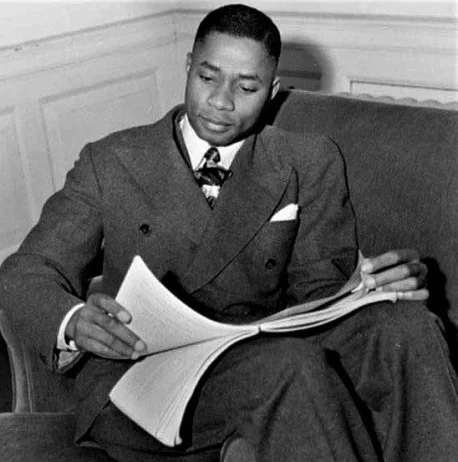Nigeria’s history has always been without a significant icon. This icon’s steady erasure from Nigeria’s history is fueled by the lack of emphasis placed on it.
Even those who pretend to be interested in history frequently miss certain important details.
For instance, Funmilayo Ransom Kuti is well known for being the first woman in Nigerian history to drive an automobile. Few people are aware of her significant place in Nigerian history.
Funmilayo Ransom Kuti, the mother of the great Afrobeat legend, Fela Anikulapo Kut i, was a charismatic Amazon who, at a point, led a massive struggle for women’s liberation.
She is only depicted as Nigeria’s first female car driver in the pages of popular history.
Akweke Abyssinia Nwafor-Orizu, who served as Nigeria’s president from October 1965 to January 16, 1966, and as president of the Nigerian Senate from November 1963 to October 1965, is among those who have been purposefully omitted, or bowdlerized, from the annals of Nigerian history.
Nwafor Orizu served as acting president of Nigeria for three months. During the military coup, he suspended the legislatures and temporarily handed over power to the military, thereby ending the Republic for the time being. The public should have access to this information.
Therefore, Dr Nwafor Orizu, deserves to be included among Nigeria’s Heads of State and given his proper place in the National Hall of Fame.
Nwafor Orizu is legally positioned as the President and Head of State of the Federal Republic of Nigeria by virtue of taking the oath of office, even in his acting capacity.
This places him in higher status and position than Ernest Shonekan, who led the Interim government for three months and has been granted all the rights due to a former Head of State of Nigeria.
If Ernest Shonekan could be considered to be Head of State, nothing should disqualify Nwafor Orizu, who had a higher rank in the Republic and whose position was secured by the statute of an elected parliament member of the republic.
This is the issue that should have long preoccupied students of the public system, Nigerian jurisprudence, legal history, and political history.
Similarly, both men led the country at a point and transited power to another government as required by the office they occupied.
Nwafor Orizu’s presidency, however, has frequently undermined his position. In a very challenging circumstance, in the midst of a coup , Nwafor Orizu was serving as acting president of Nigeria.
When Dr Nnamdi Azikiwe, the republic’s then-president, left the country for a vacation in October 1965, he sent a letter to Parliament appointing Orizu as president in his stead. This legally transferred to President Orizu, albeit temporarily, all of the duties, authority, and rights associated with the office of President of Nigeria.
Records should officially recognize this and accord him his constitutional honour even if it was a short time of leadership.
Nwafor deserves more than just naming monuments after his name; he deserves conspicuous honour as an ex former Head of state.
The government renamed the College of Education, Anambra to Nwafor Orizu College of Education in Nsugbe, but the icon deserves more.


